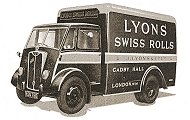 |
Commercial Vehicle
Building
in the
Black Country |
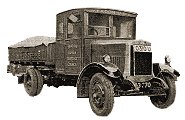 |
|
In a busy industrial area with
several successful car manufacturers, it was inevitable
that some of them would add commercial vehicles to their
range of products, especially as some of them, such as
Star, had been producing cycles for many years,
including accessories such as the tradesman’s carrier, a
trailer for carrying goods or tools.
Star was the first manufacturer in
the area to produce complete, purpose-built lorries and
vans, which went into production in 1902. With a
capacity of 6 cwt. they proved to be very successful.
Within a few years Star was joined by Sunbeam, which
always saw itself as a car manufacturer, but did produce
a small number of commercial vehicles on its standard
car chassis. Star’s allied company, Briton was also
producing light commercial vehicles before the First
World War, as was the Black Country’s largest, and
leading commercial vehicle manufacturer, Guy Motors,
which was formed in 1914. During the war, the company
supplied large numbers of 30 cwt. trucks to the Russian
forces, and ambulances were supplied to the allied
forces by Star, Briton, and Sunbeam. |
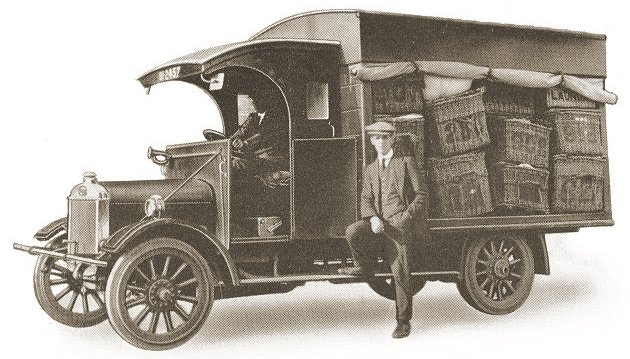
An early Guy 30 cwt. lorry.
|
In January 1924 William Morris
acquired a factory in Foundry Lane, Smethwick which
became the headquarters of Morris Commercial Cars
Limited, formed to manufacture commercial vehicles. A
range of vehicles were produced on the site, based on
the company's one ton chassis. At the end of the year
Bean entered the market with its 20/25 cwt. chassis,
which was used for lorries, vans, ambulances, coaches,
and light buses.
In 1929 motorcycle manufacturer
A.J.S. began building commercial vehicle chassis at
Lower Walsall Street, Wolverhampton. The chassis, known
as the ’Pilot’, and the ‘Commodore’ were used for
lorries, vans, coaches, and buses. After the closure of
A.J.S. in 1931, the ex-owners, the four Stevens brothers
founded Stevens Brothers (Wolverhampton) Limited, and in
1932 began to produce a 3-wheeled van. In the mid 1930s
another ex-motorcycle manufacturer, Diamond, began
producing a range of small electrically powered trucks,
under the ‘Graiseley’ name. |
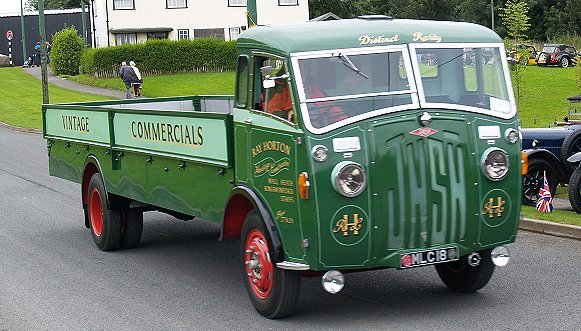
A Jensen 'JNSN' lorry from 1951.
|
In 1939 Jensen Motors of West
Bromwich entered the field with a lightweight truck,
later followed by the ‘Jen-Tug’ articulated vehicle, and
the JNSN lorry and coach. The last manufacturer to begin
production in the Black Country was the Turner
Manufacturing Company of Wolverhampton, which produced 2
and three-wheeled vehicles under the LDV name, and also
the ‘Yeoman of England’ agricultural tractor.
The last commercial vehicles manufactured
in the area were produced by the largest and most
well-known company, Guy Motors. The business closed in 1981
after manufacturing vehicles for 67 years.
Since the early
years of the 20th century, the local manufacturers built
large numbers of lorries, vans, coaches, and buses,
which greatly added to the prosperity of the area. Large
numbers of people were employed in the industry, which
was supplied by many local component manufacturers,
including chassis builders, foundries, engine makers,
tyre makers, lock makers, and nut and bolt makers.
Although the once important
industry has almost been forgotten, many of the locally
made vehicles still survive, and are well looked after,
and cherished by their owners. They can be seen at
vehicle rallies, and museums, such as the Black Country
Living Museum, and will be a permanent reminder of what
was achieved. |
|
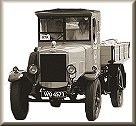
|
|
Return to the List of
Manufacturers
|
|